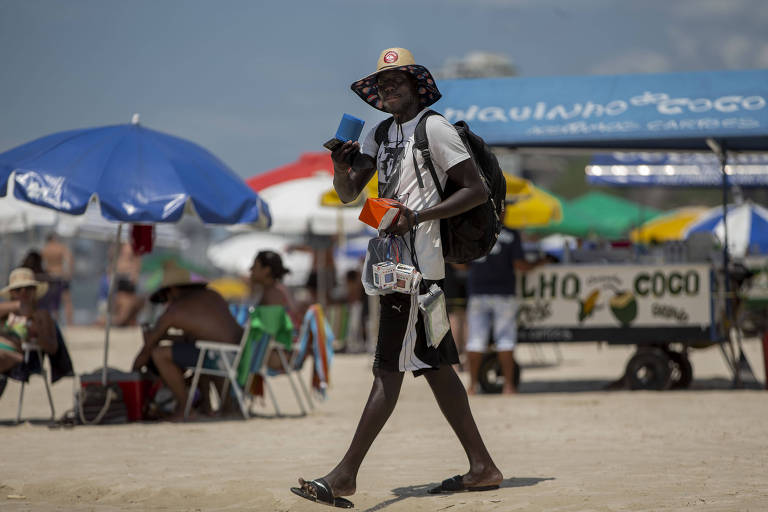Senegalese street vendor Mor Seck, 36, says he made one promise when he left Dakar, the African country's capital. He would earn a living away from home as a butcher, a traditional occupation in his family.
After five years in Brazil, he has already given up on his pledge. Seck works daily under the scorching sun on the beaches of Guarujá, on the coast of São Paulo, selling small items. Even amid the worst sales moment, a reflection of the Covid-19 pandemic, he still does not think about returning.
"I've tried so many times [to leave the beach], but they don't give me a chance. My wife braids hair to help, but sales have never been so slow. People here often buy lunch for us," said the street vendor.
In the summer marked by the pandemic, Senegalese immigrants work as street vendors selling trinkets on beaches like Asturias, Pitangueiras, and Enseada.
With sacks on their backs and hands full with balancing speakers, clothes, hats, and a range of goods, they remain in the country to help the families they left in Senegal.
"Life there is much worse, more difficult. We returned and we stayed for a few months, but we decided to come back to Brazil to try again," he said.
Translated by Kiratiana Freelon
